It’s a weekday evening, and the relentless Delhi sun has just made way for a beautiful dusk. At gymkhana grounds of the prestigious All India Institute of Medical Sciences (AIIMS), around 20 doctors, medical students and paramedics have gathered. Dressed in taekwondo suits, some of them look distinctly out of place in the most hallowed of medical facilities of India. A doctor’s apron cannot be mistaken for a taekwondo suit.
After a good round of stretching muscles, their martial arts class begin.
Some of them wobble, some cant kick. Clearly, we are not dealing with Karate Kids here. Yet the steady stream of giggles and backslapping ensures that the enthusiasm doesn’t wane.
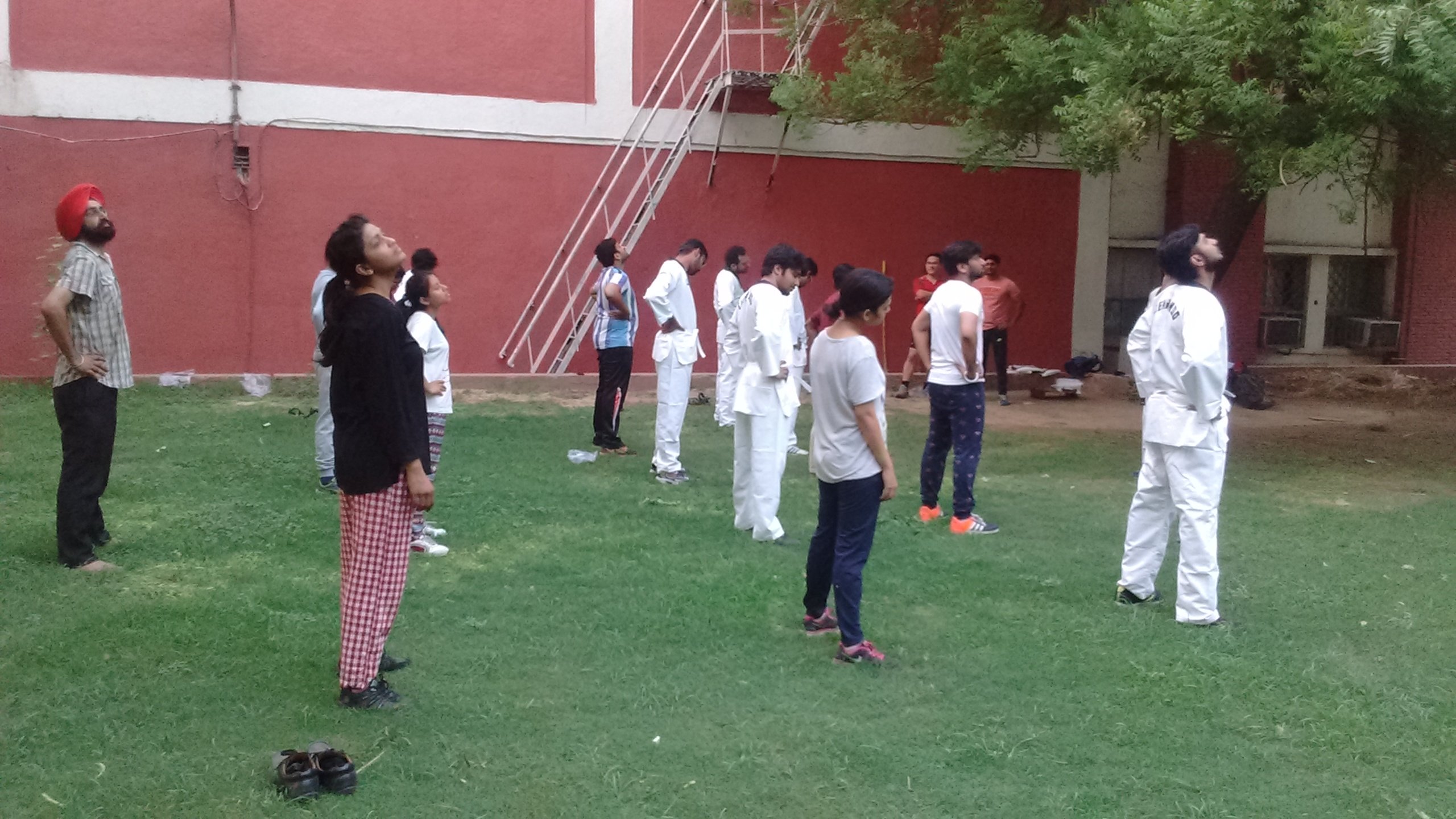
Welcome to the AIIMS self defence class, where doctors learn to protect themselves from the ire of their own patients.
“Self defence is everyone’s fundamental right. Why should anyone think twice before protecting oneself,” Dr Hanjabam Barun Sharma, MD, Physiology working at the All India Institute of Medical Sciences (AIIMS) asks. Sharma is talking about the newly introduced ‘extra-curricular’ course which his fellow doctors at AIIMS have voluntarily taken up.
Earlier this month, a group of 30-40 men abducted and assaulted an assistant professor of Yenepoya Medical College in Deralakatte, Karnataka, following the death of a patient. Last week, in Jaipur, a doctor was badly beaten up by the relatives of a patient who died while undergoing a treatment. Dr Ajay Bansal, owner of Bansal Hospital, has received 46 stitches on his head and also broken his nose.
डॉ. रोहन म्हामुनकर यांच्यावर ठाण्यात उपचारhttps://t.co/i5Ts89Fm5d < बातमी#dhule #doctor #beaten #Thane pic.twitter.com/7GU5SMcYe9
— maharashtratimes.com (@mataonline) March 16, 2017
In March, doctors in Maharashtra organised mass protests across the state after violent attacks by patients’ relatives. The protests were called off after the intervention of chief minister as well as the Bombay High Court.
Clearly, doctors in our country don’t feel safe.
“We have introduced these classes as a precautionary measure,” Sharma, who organised the self-defence classes just a few days back told ScoopWhoop News.
“Why should we wait for something to happen first?” he asks.
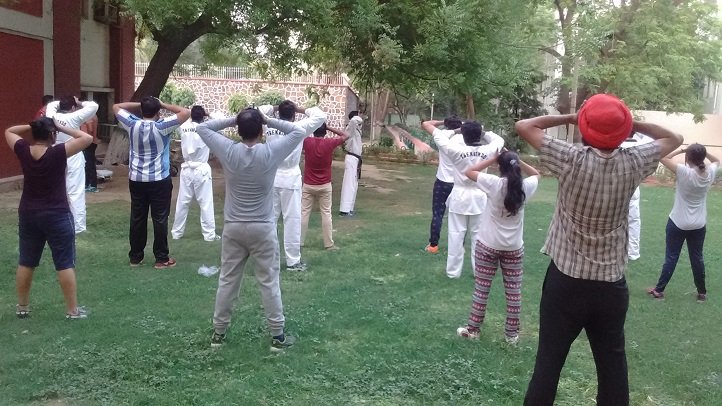
One-hour class, three times a week
The one-hour classes are held three times a week. Doctors are given training in Taekwondo, a south Korean martial art form by two trained practitioners. The programme is open for all, including MBBS students, scientist, teachers and paramedics. at cost of ₹1,000 per person for a batch of 20.
“This strenuous profession demands medical practitioners to study all the time because of which doctors don’t get much time for themselves. They should first take care of their own health. Else, how will they take of their patients”, says Sharma.
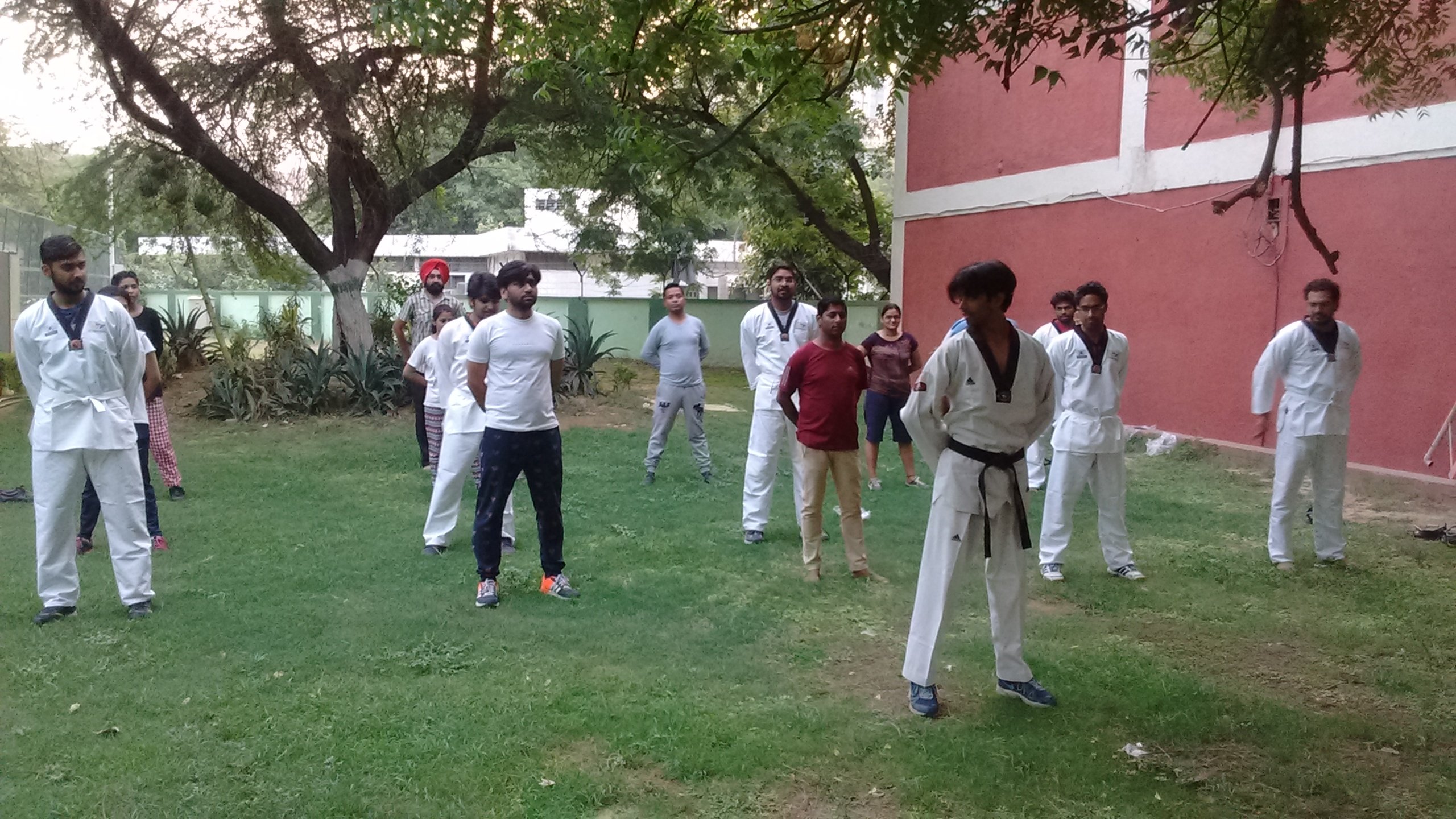
Security guards are the first to run away
Dr Vijay Gujjar, President, Resident Doctors’ Association (RDA) at AIIMS who was one of the brains behind the classes, has an interesting take on the issue.
“Whenever such incidents happen, the security guards are the first to run away. They are not to be blamed because who would put their life at stake for Rs 7000 per month. The rapid action force takes two hours to come. Keeping in mind the threat doctors face, self defence is the last resort to ensure our safety,” he says.
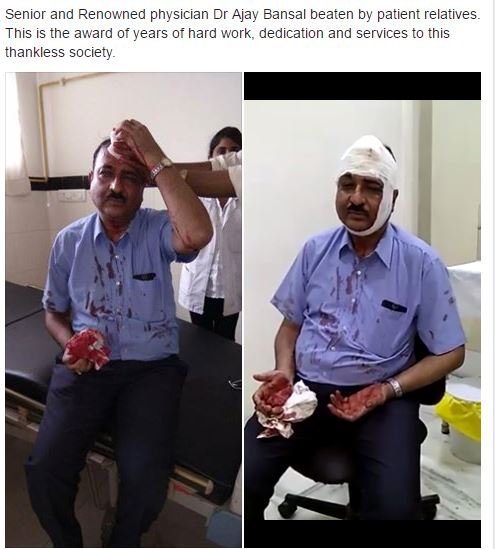
How is the doctor responsible for oxygen cylinders?
Being the face of the medical profession, comes with its share of disadvantages, it seems.
“Tell me one thing, how is the doctor responsible if there aren’t any beds or oxygen cylinders? But who are blamed for it – doctors. Sadly, because of all of this, doctors aren’t now willing to become surgeons and would rather prefer departments like microbiology” says Gujjar.
Dr Harijit Singh, Secretary, RDA claims that people attack doctors for problems which are beyond their control. Apparently, a famous blogger came to the hospital recently because he had breathing problems. He wasn’t provided a bed because none of them were vacant.
“The guy created a huge furore . He even wrote that the doctor should should be beaten for his ‘negligence’. Just because you are a famous blogger doesn’t mean that the hospital will snatch away someone else’ bed for you,” says Singh.
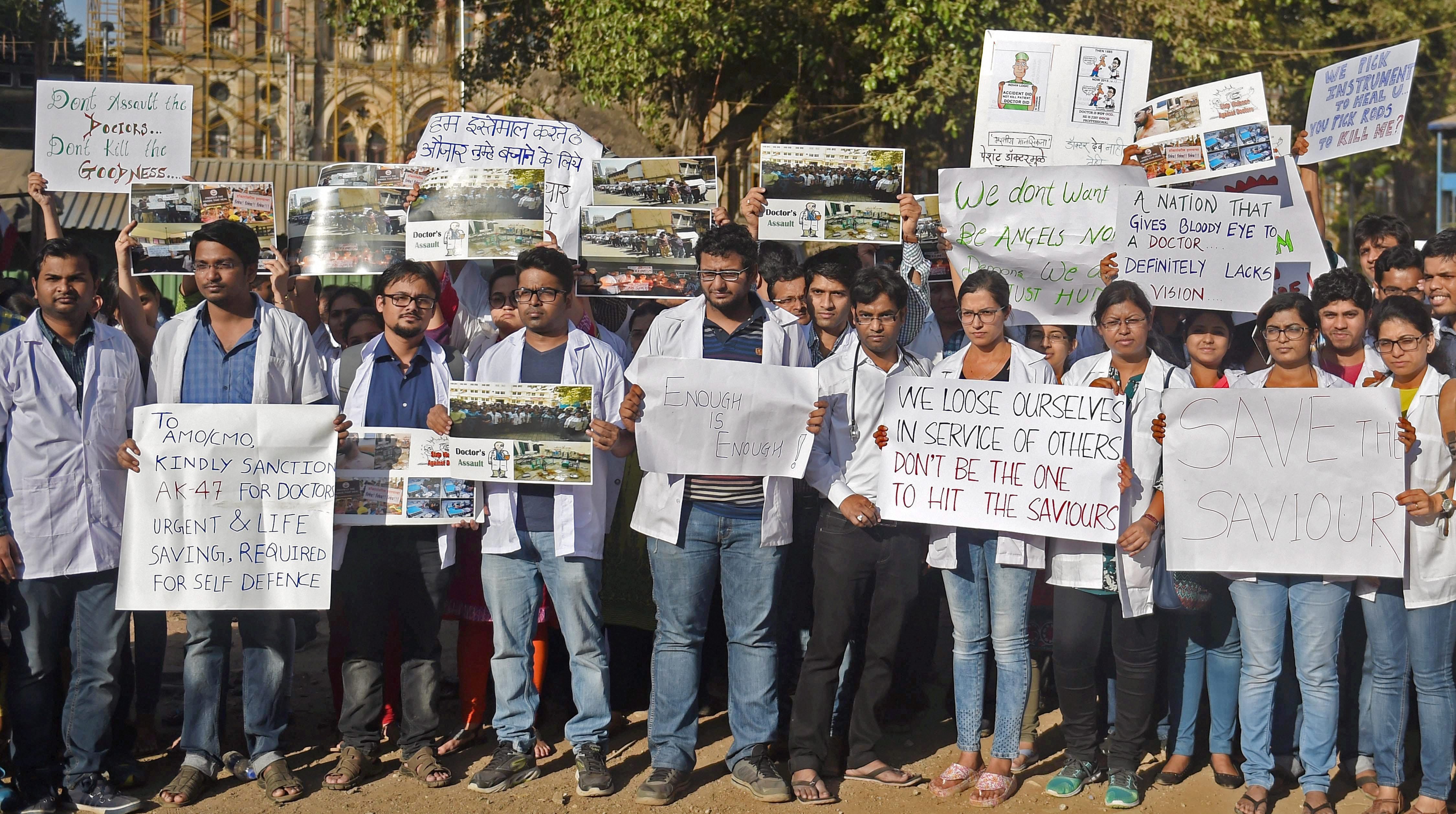
Apparently, doctors don’t like involving police in the case of assault because more often than not, they end up being targeted themselves.
“Three years ago, a surgeon was beaten so badly by the patient’s relatives that he suffered a nasal injury. When we filed a case, the perpetrators filed a counter case against the doctor. The case is still languishing in court,” he says.
It’s not a public versus doctors issue
A Mumbai Mirror report says that 53 doctors were attacked in the last two years in Maharashtra and none of the cases saw conviction.
Dr Gujjar said that it is high time administration takes notice of the issue so as to solve the crisis. “The administration always opts for the easiest way out by removing the doctor-in-charge. But will it solve the problem?,” he asks.
“Whenever we go on a protest, the government slyly turn it into a ‘public versus doctors’ battle. Even we understand what patients and their relatives go through. But that doesn’t mean they can resort to violence,” says Gujjar.
(Feature image source: ScoopWhoop News| Sreeraj)

















